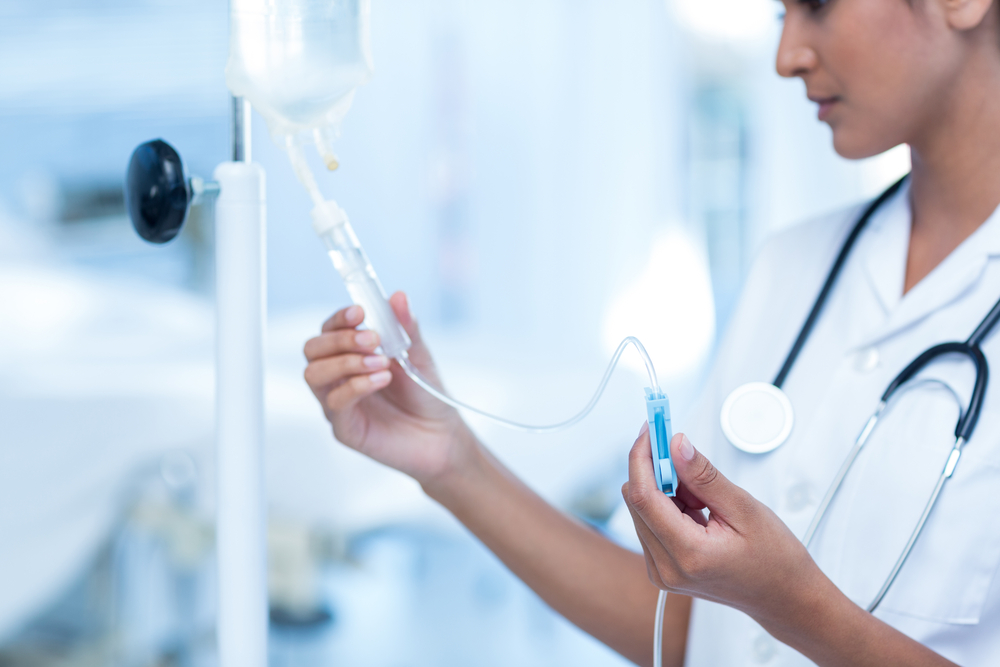When considering substance abuse treatment or mental health treatment, various program options might appeal to you depending on your specific circumstances. Two of the more common treatment programs include an intensive outpatient program (IOP) and a partial hospitalization program (PHP). Deciding between the two options and choosing your treatment center is a personal decision. Chief among the possible considerations are the extent of your substance use or mental health condition and how your recovery journey aligns with other areas of your life. Both forms of treatment are effective when you choose the right rehab center.
For instance, PHP vs IOP treatment in Arizona relies on evidence-based therapy to create parameters for treatment. While entering outpatient treatment in any form might seem formidable, it’s the start of your recovery. Recovering from mental health issues or substance abuse disorder doesn’t always take a linear path. Partial hospitalization or one of the intensive outpatient programs offered at a treatment center might be a good place to start.

BEGIN YOUR RECOVERY TODAY!
We can help you achieve permanent sobriety that gives you your life back. Call to learn more about our therapy options in Phoenix, AZ.
PHP vs IOP Rehab: Comparing Substance Abuse Treatment Options and Mental Health Treatment Programs
What is a Partial Hospitalization Program?
A partial hospitalization program (PHP) delivers substance abuse and mental health treatment during the day while allowing you to return home each night. A PHP program has many characteristics of an inpatient rehab program, but it incorporates more intensive components of treatment, including some medical aspects. It addresses underlying causes of substance use and mental health conditions, recommending treatment protocols for co-occurring mental health disorders.
Partial hospitalization programs are also particularly helpful for individuals who struggle with severe mental health conditions, including PTSD, anxiety disorders, and depression. Evidence-based therapies like Cognitive Behavioral Therapy (CBT), Dialectical Behavior Therapy (DBT), and trauma-informed care such as EMDR (Eye Movement Desensitization and Reprocessing) are key components in addressing both substance use and mental health needs.
In short, PHP is a middle ground between an inpatient residential treatment program and outpatient treatment. PHPs try implementing protocols for patients when they return home each night to avoid derailing their recovery. PHPs rely on group, family and individual therapy and share coping strategies to help patients avoid being negatively influenced upon returning home each night. Moreover, PHPs offer a highly structured environment for those needing more intensive care for mental health conditions. Patients can access psychiatric services for medication management alongside their therapy sessions, ensuring holistic mental health care.
What is an Intensive Outpatient Program?
An intensive outpatient program (IOP) is typically recommended when medical detoxification is unnecessary. It’s also an option for those who want to seek recovery without dropping out entirely from their work or family lives. IOPs are ideal for individuals who need ongoing support for mental health challenges, such as anxiety, depression, or mild PTSD while continuing with daily responsibilities. Therapy sessions focus on building resilience through coping skills and managing mental health symptoms to prevent relapse.
IOPs help you rebuild your personal life and repair some of the fractured relationships that can occur at the height of substance use disorder. It also provides a foundation for long-term support in seeking lifelong sobriety. IOPs also provide a crucial lifeline for those managing conditions like depression or anxiety while undergoing addiction treatment. With a blend of individual, group, and family therapy, these programs ensure that mental health remains a core part of the recovery process.
Counseling is one of the foundational components of IOPs to supplement the absence of residential treatment rules that mitigate substance-related temptations.
Benefits of a PHP for Mental Health and Addiction Treatment
PHPs are beneficial for those who need a mildly intensive approach without being subject to the restrictions of a residential program. Those with young children or who experience extreme anxiety about being away from home may benefit from a PHP. Those unable or unwilling to leave their lives behind to seek treatment may find that participating in a PHP gives them a chance at recovery.
PHPs provide compassionate and effective treatment for chemical dependency and mental health conditions in a less restrictive setting than an inpatient rehab program. These programs incorporate evidence-based approaches, such as dialectical behavior therapy (DBT), trauma-focused care, or psychiatric support, to perpetuate the healing process. For individuals with severe depression or anxiety disorders, PHPs offer daily therapeutic support in a structured setting, helping them stabilize their mental health while addressing substance use.
This ensures that returning home each night won’t diminish the effectiveness of what you’ve learned at the treatment facility during the day, especially if mental illnesses are affecting your addiction. Healthy coping skills are even more critical in PHPs, so they’re often the focus of proper treatment to make long-term recovery likelier.
Additionally, mental health relapse prevention is a critical focus of PHP treatment. Healthy coping skills are taught to manage symptoms of mental health conditions such as panic attacks, depressive episodes, or PTSD triggers, ensuring patients can maintain long-term recovery both mentally and physically.
Benefits of an IOP for Mental Health and Addiction Treatment
The main benefit of intensive treatment on an outpatient level is that it’s sometimes the only way to begin the process of healing from substance use or mental health challenges. Inpatient programs often require resources and time that many don’t have. However, an IOP can be just as intense as a residential program without the need to leave everyday life behind. For individuals dealing with conditions like anxiety or mild depression, IOP treatment provides therapy and support while allowing them to continue with their family and work responsibilities.
Intensive outpatient treatment programs differ from partial hospitalization because the recovery process occurs on an outpatient level. IOPs are highly effective for managing mental health disorders, especially for individuals with strong home support systems. These programs offer various therapies—CBT, family therapy, and group counseling—to help manage mental health symptoms in a structured yet flexible setting.
Outpatient treatment for mental health or substance abuse at a qualified treatment center relies on elements such as group therapy and evidence-based treatment for those struggling with substance-related issues. While addiction treatment is often touted as only effective within an inpatient treatment construction, the truth is that an outpatient treatment center can be highly effective through an IOP approach.

PHP vs IOP: Choosing the Right Rehab Program for Your Needs
When deciding between a Partial Hospitalization Program (PHP) and an Intensive Outpatient Program (IOP), it’s essential to consider both the severity of your substance use and mental health conditions, as well as your personal circumstances. The right choice depends on several factors that impact the effectiveness of your treatment journey. Here are key points to consider:
1. Severity of Substance Use and Mental Health Disorders
- PHP is ideal for individuals dealing with more severe substance abuse and co-occurring mental health disorders. If your addiction or mental health condition is significantly impairing your ability to function daily—whether it’s extreme anxiety, deep depression, or constant cravings—PHP offers a structured and intensive environment. This level of care ensures you receive both therapeutic support and medical supervision to stabilize your condition.
- IOP may be more suitable for those with moderate substance use and mental health issues who don’t require the constant supervision of a PHP but still need regular, structured support. IOP allows you to maintain your daily life while participating in treatment multiple times a week, making it a great option if your condition is manageable but still requires consistent attention.
2. Your Daily Responsibilities and Flexibility
- If you have significant family, work, or school responsibilities, an IOP might offer the flexibility you need to balance treatment with everyday life. IOP sessions are often scheduled around your commitments, allowing you to receive care while maintaining your personal and professional obligations. This is especially helpful if you have a supportive home environment where you feel safe while working on your recovery.
- PHP, on the other hand, is better suited for individuals who can dedicate a significant portion of their time to recovery. PHP typically requires attending therapy 5-6 days per week for several hours a day. This option may be preferable if you can temporarily step away from work or family duties to fully focus on your healing, especially if your environment is not conducive to recovery.
3. Level of Support at Home
- A strong support system at home can make a difference in choosing between PHP and IOP. IOP is a good fit if you have a stable, supportive home environment where family members or loved ones encourage your recovery. Having people around who understand your mental health or addiction struggles can help reinforce the coping skills you learn during therapy.
- If your home environment is stressful or if you are frequently exposed to triggers, PHP might be the better choice. The structured daily care provided in a PHP setting minimizes exposure to negative influences and helps you build a solid foundation before you return home each day.
4. Co-occurring Mental Health Disorders
- If you are struggling with a co-occurring mental health condition—such as depression, anxiety, or PTSD—consider the intensity of care you need to manage both issues. PHP offers a more comprehensive approach, with access to psychiatric care, medication management, and daily therapy sessions designed to stabilize severe mental health symptoms. This can be particularly beneficial for individuals experiencing frequent mood swings, suicidal thoughts, or debilitating anxiety.
- IOP is suitable for individuals with milder mental health conditions that don’t require daily medical supervision but still benefit from regular therapy and support. If your mental health symptoms are manageable with less frequent interventions, an IOP can provide the necessary care without overwhelming your daily routine.
5. Relapse Risk and Prevention
- If you have a history of relapse or are at high risk for relapse due to the severity of your addiction, a PHP might provide the structure and support necessary to prevent a setback. PHPs offer more frequent therapy sessions focused on relapse prevention strategies, along with close monitoring of your progress.
- If you have already completed a higher level of care, such as inpatient treatment or a PHP, and are ready to transition to a less intensive program, an IOP might be the appropriate next step. IOPs offer continued support while promoting independence and the application of relapse prevention techniques in your everyday life.
6. Treatment Goals and Readiness
- When deciding between PHP and IOP, reflect on your personal goals for treatment. Are you ready to dedicate the time and energy needed for an immersive recovery experience? If you are highly motivated and recognize that a significant commitment is required to regain control of your life, a PHP can provide the intensive focus you need to jump-start your recovery.
- Conversely, if you feel confident in your ability to handle some of the pressures of daily life while undergoing treatment, an IOP allows you to stay engaged in your life while receiving the care necessary to maintain progress. This is especially helpful for individuals who have already developed coping mechanisms and now need guidance to stay on track.

Take the Next Step: Personalized PHP and IOP Treatment for Lasting Recovery
When choosing between PHP vs IOP rehab in Arizona, the decision should be made based on what you need from your rehab of choice. At Camelback Recovery, we want to help you choose an addiction treatment program that will free you from substance-based dependency and improve your mental health. Our approach addresses your struggles with substance use disorder and co-occurring mental health disorders so that you can rediscover your passion for life.
We’ll create an individual treatment plan for you based on what you need from a treatment program to ensure you receive the best level of care. We offer both PHP and IOP programs so that you can choose the one that best suits your needs. Contact us at 602-466-9880 to learn more.





